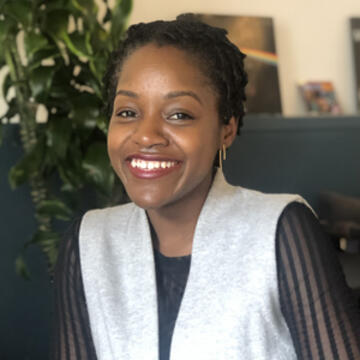
Tricia Douglas

Tricia Douglas is a designer and an educator.
She holds a masters in teaching from Johns Hopkins and an undergraduate degree in human development from Howard University.
After attaining her masters in teaching, she worked as a classroom teacher within K-12 learning environments in Washington DC and NYC. Soon after, she supported education technology startups in applying methodical problem solving to address digital and tactile challenges facing educators and students. Most recently, she has worked with organizations, large and nimble, to deepen the scope of design and research investments in service of broader corporate initiatives.
While accelerating in her profession as a designer—working at increasing levels of abstraction, complexity and scale, she has maintained her commitment to teaching and development through adjunct and guest lecture roles at institutions like Lesley University, St. Johns University, and Kingsborough Community College. Over the years, she has developed events and curricula with an explicit intent to provide underrepresented candidates with the awareness, early education, and networks needed to effectively pursue a career in design.
Presently, she is a PhD candidate and a Teaching Fellow at the Carnegie Mellon School of Design.
Having spent the entirety of her career in either education or design spaces, she is uniquely positioned to couple design theory with technological, policy, economic, and behavioral models to introduce unique and enduring transition pathways across the two disciplines.
Intrigued by the work of Paulo Freire and bell hooks, she posits that the practice of designing a liberatory education for the 21st century must extend beyond the classroom as a boundary object and consider learning as a lifelong, transformational, and highly personalized experience.
Some of the more tangible questions that propel her within the realm of liberatory learning include:
- How can we transition the legalized segregation models of schooling that we navigate today into more equitable and just learning communities?
- What are the implications for a future without historically Black colleges and universities? And how might we protect the spirit, integrity, and legacy of these institutions from transitioning into extinction?
- How might we transform the pedagogical design of K-12 learning environments to re-envision success and achievement from the lens of self-actualization, sustainable living, and preparation for impending, real-world challenges?
- How can design facilitate career pathways that better integrate historically disenfranchised candidates into professional and social environments and create safe, authentic and apt opportunities for learning and growth?